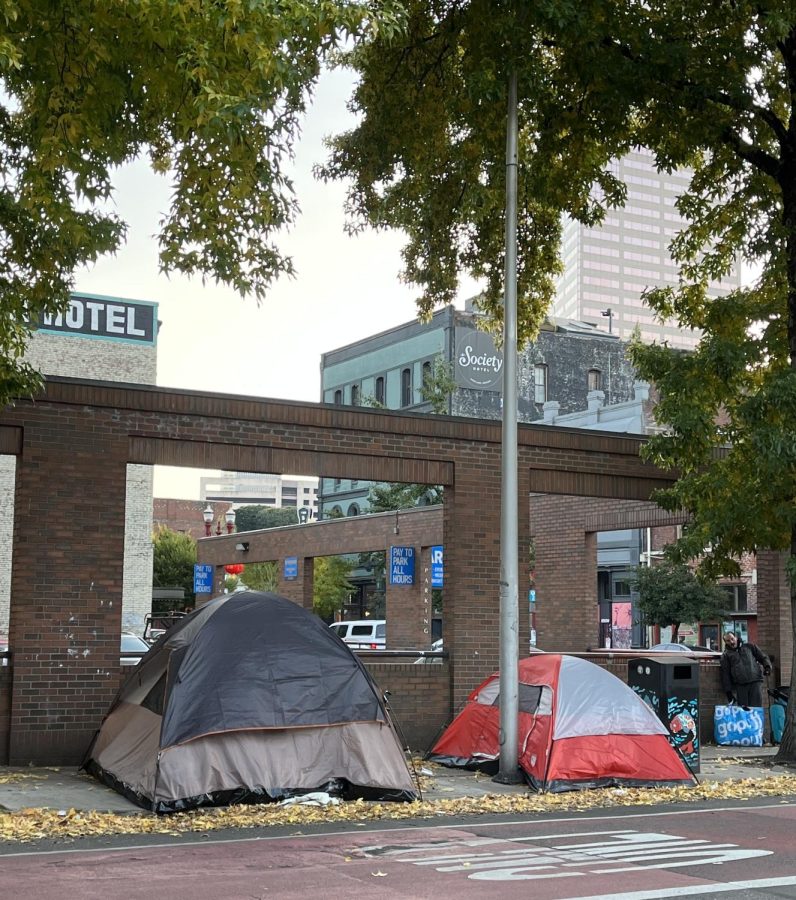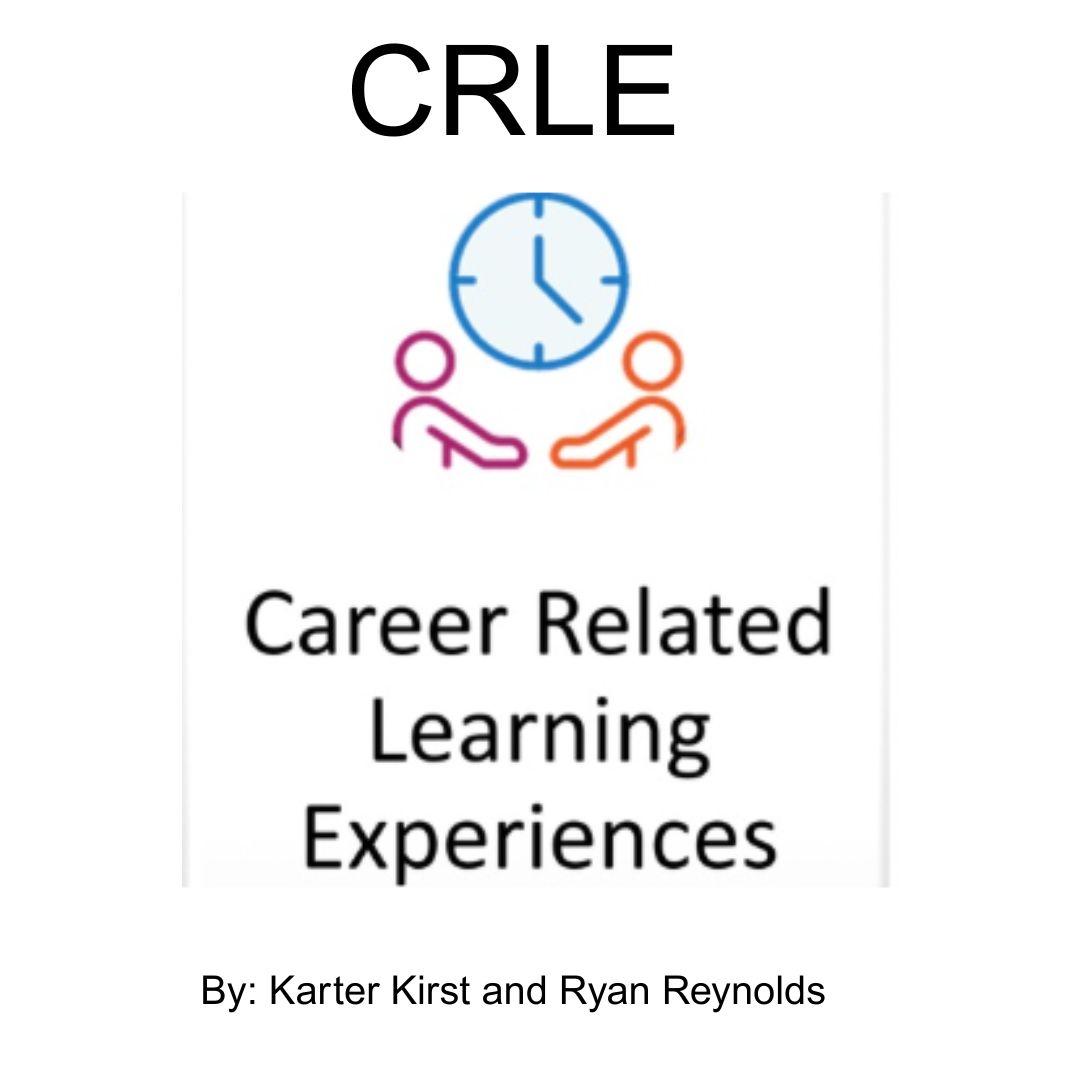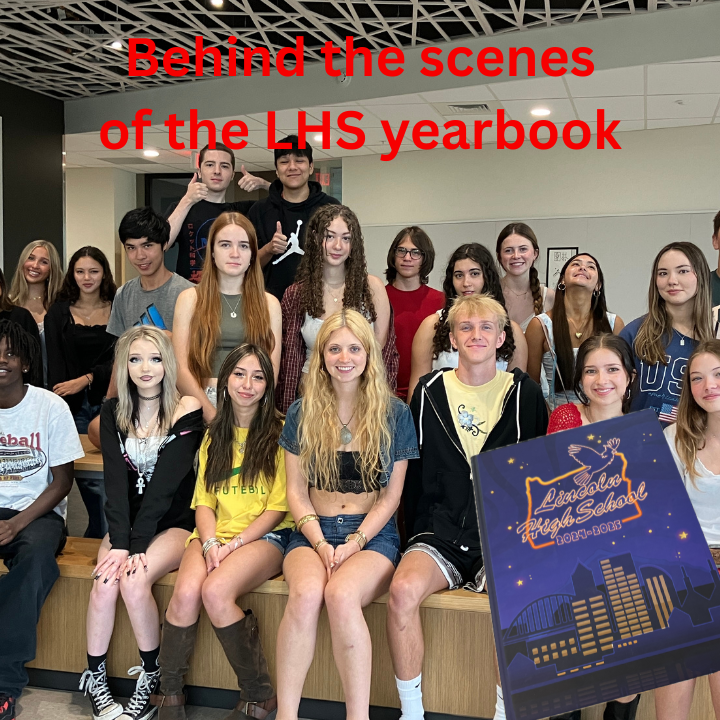Mayor Wheeler’s new houseless camping ban causes controversy
Two tents block the sidewalk on NW Everett. In the coming months, tents and encampments will be removed from sidewalks in accordance with new city council resolutions.
November 22, 2022
In October of 2022, Portland Mayor Ted Wheeler unveiled his plan to ban houseless camping on city streets. Two weeks later, the resolution passed in a city council vote.
Over the next 18 months, the City of Portland plans to build six mass campsites that will house 150 people each to provide a legal space for houseless camping. According to the city, there could be over 3,000 unhoused people in Portland, 49% of whom are not in shelters.
In an email sent to the Mayor and city commissioners, The American Civil Liberties Union (ACLU) warned that the passing of the resolution to ban camping could violate court cases Martin v. Boise and Johnson v. Grants Pass.
“The Ninth Circuit Court of Appeals has twice affirmed the right to rest for people who have no shelter to sleep in,” the email stated. “The rulings prohibit using criminal enforcement mechanisms to prohibit camping in public when a person has nowhere else to go.”
Flock Feast Serves is a Lincoln club that prepares and serves food to houseless individuals on Portland’s east side. President Lauren Fin, a junior, believes the resolution will unnecessarily disturb unhoused people’s lives without offering a long term solution to the houseless crisis.
“I never think moving people from where they are to another temporary location is a [good] way to go about it,” Fin said. “One thing that I’ve actually heard a lot from the individuals I work with is that encampments are truly like a community, like a neighborhood. You’re pulling them away from their people.”
Fin is also concerned about the city’s record when it comes to creating sanctioned camps. In June of this year, a city-funded camp in Old Town, run by the nonprofit organization All Good Northwest, shut down after reports of gunfire in the area. According to Willamette Week, All Good Northwest has shown interest in operating Wheeler’s camps.
“We’ve had a lot of these lots or villages open up, but then a few months after that happens they get shut down again,” Fin said. “That can be traumatizing for [houseless] people.”
Impact Northwest is a Portland based non-profit that works to prevent houselessness and responded to Wheeler’s proposal with an “alternate homeless prevention strategy.”
Director of Development and Advocacy, Ada Dortch, stressed the importance of a “housing first” approach, that takes trauma, race and identity into account.
“[Impact Northwest] believes that whatever services are provided to address the crisis need to be culturally responsive [and] anti-racist,” Dortch said.
In September, a lawsuit was filed against the city by 10 disabled Portland residents who claim allowing tents on the sidewalk violates the Americans with Disabilities Act (ADA). Even before the lawsuit, the city responded to complaints from groups like The Old Town Community Association with mass sweeps of encampments.
Dortch believes that the interests of businesses are being prioritized in Wheeler’s plan over the human rights of the houseless community.
“While there’s some validity around people wanting to feel safe, the answer isn’t just moving a campsite to another campsite,” Dortch said. “The answer is having a humane approach to getting someone housed.”





